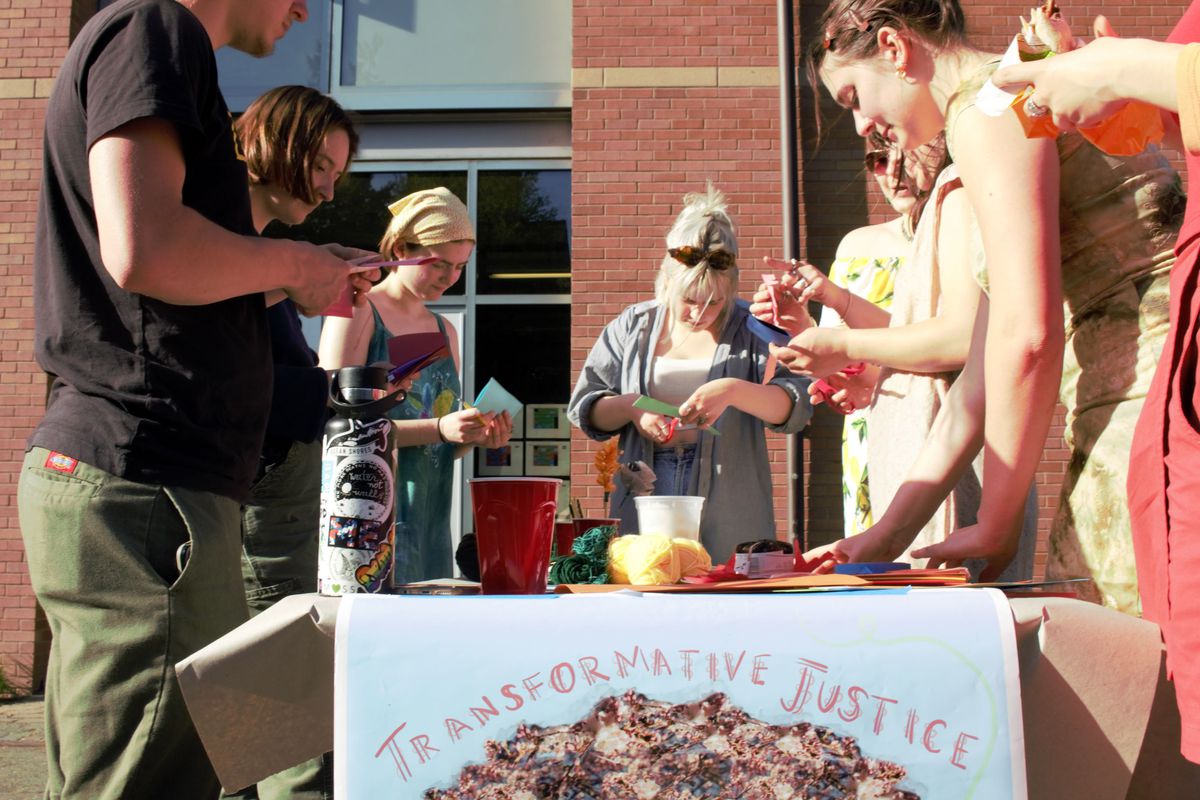
Lewis & Clark’s first Transformative Justice Symposium (TJS) took place on campus from April 4-7. The inaugural symposium focused on the theme of “Planting the Seeds of Transformative Justice.” Through the symposium, the coordinators forced on practices and current dialogues through two keynote speakers, a panel of different Lewis & Clark community members, a gardening event and an art event.
The co-coordinators of the symposium and co-leaders of the Prison Abolition Club, Coral Barrett ’22, and Emi Olson ’22 felt that the first event on April 4 was a perfect way to kick off the Transformative Justice Symposium. It served as an introduction into what transformative justice is and what it means.
“Transformative justice and justice in general can’t really happen if you don’t have a set of community and community guidelines.” Barrett said.
Cory Lira, interim director of Women’s Resource Center at Portland State University, and an international lecturer on prison industrial abolition, was the keynote speaker. They spoke on how it takes time to understand just how infiltrated people are in the carceral system and carceral mindset.
At the event, Lira gave recommendations of books that Olson and Barrett hope to donate to a set of Transformative Justice books which they hope the Aubrey R. Watzek Library will host in the future.
The Prison Abolition Club also partnered with the Native Student Union and the Garden Club on campus. The event took place on April 5th in the community garden space outside Forest Hall. During the event, participants made seed bombs to donate to the Equitable Giving Circle and talked about the Indigenous roots of transformative justice and food sovereignty.
On April 6, TJS hosted a Conversation with Lisa Larson from Dignity Village and keynote speaker Melissa Buis Michaux, Professor of Politics, Law, Policy and Ethics, and Director of the Transformative Justice Initiative at Willamette University. Michaux runs a program that has both incarcerated students and non-incarcerated students at Willamette University.
“They have a transformative justice mission (at) Willamette that we would love to know more about and maybe like to model after,” Olson said.
To begin wrapping up the symposium, students brought art materials and created what they think the ideas of community and justice look like and discussed the role of art in transformative justice.
Finally, on April 7, the first TJS finished with a Transformative Justice Panel, featuring Associate Professor of History Reiko Hillyer, Mateo Telles ’22, Caroline Arnis ’23 from the Feminist Student Union and graduate student Eden Baron.
“A big piece of transformative justice is like not just related to the harm, but supporting the community so that it prevents harm and so that we can address it together when harm does occur,” Olson said.
Subscribe to the Mossy Log Newsletter
Stay up to date with the goings-on at Lewis & Clark! Get the top stories or your favorite section delivered to your inbox whenever we release a new issue.

Leave a Reply